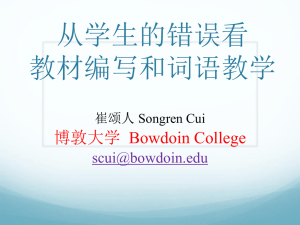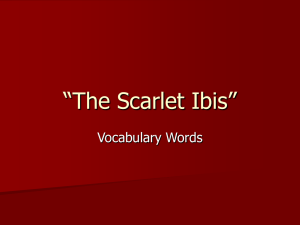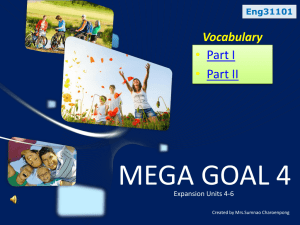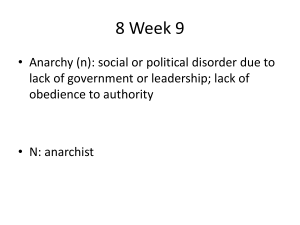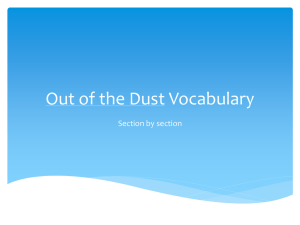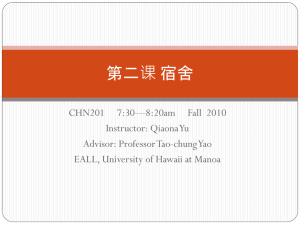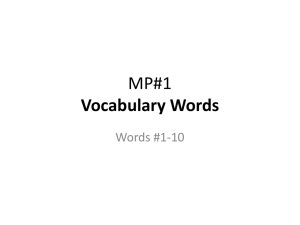Vocabulary
advertisement
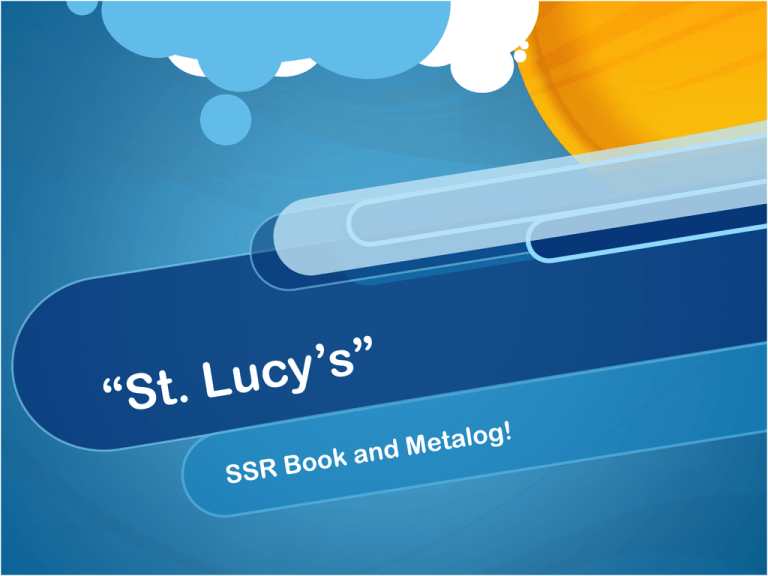
Vocabulary initial (adj.) – first or beginning couth (adj.) showing or having good manners or sophistication culture shock (n.) a state of bewilderment and distress experienced by an individual who is suddenly exposed to a new, strange, or foreign social and cultural environment. Vocabulary (Cont.) kempt (adj.) – neatly or tidily kept exuberant (adj.) – extremely joyful and vigorous kinetic (adj.) – characterized by movement remedied (v.) – corrected or removed a problem of any kind Vocabulary heifer (n.) – a young female cow cleric (n.) – an ordained member of a religion jugular (n.) – short for jugular vein, a large vein in the neck disconcerting (adj.) – upsetting or disturbing bliss (n.) – supreme happiness catastrophic (adj.) – disastrous adapted (v.) – adjusted oneself to different conditions Vocabulary (Cont.) barbarity (barbaridad – Spanish) (n.) – crude or unsophisticated act languid (adj.) – relaxed hirsute (adj.) – hairy; shaggy sinewy (adj.) – muscular; strong purgatory (n.) – a place of purification or temporary punishment after death; a place in between two worlds ostracized (v.) excluded, by general consent, from society, friendship, conversation, privileges, etc. Vocabulary (Cont.) bilingual (adj.) – able to speak two languages with the facility of a native speaker delectable (adj.) – appetizing or delicious supplemented (v.) – completed or added to interred (v.) – placed into or buried assault (n.) – a violent attack conferred (v.) – discussed together improvised (v.) – made up Vocabulary (Cont.) bristled (v.) – (of hair or fur) stood upright away from the skin, esp. in anger or fear. overstimulating (v.) – too exciting bewildered (adj.) perplexed and confused disoriented (adj.) – confused grimace (n.) – a type of facial expression, usually of disgust, disapproval, or pain taunt (n.) – a remark made in order to anger, wound, or provoke someone eradication (n.) – removal of or destruction bipedal (adj.) – walking on two feet Vocabulary (Cont.) commandment (n.) – an order or mandate origins (n.) – places from which something arises or is derived aptitudes (n.) – abilities or talents catechism (n.) – a book of principles or instruction; usually associated with the Roman Catholic religion rehabilitated (adj.) – restored to good condition, health, or standing shunned (v.) kept away from Turn-and-Talk Based on what we just read, what do you think the girls are doing at St. Lucy’s, and what evidence from the text supports your ideas? Independent Writing Why does it seem the pack hates Jeanette and Mirabella? What evidence in the text supports your thinking? End of Stage 2 in “St. Lucy’s” Write down one question you have about Stage 2. Make one prediction about what you think will happen in Stage 3. Quick Write! What are some of the lessons the pack is learning at St. Lucy’s? Cite textual evidence to support your response. Stage 3 of “St. Lucy’s” Turn-and-Talk How does this scene reveal the differences between Mirabella, Jeanette, and Claudette, and what textual evidence supports your ideas? Independent Questions What happened at the dance? What is your response to Mirabella being expelled? Use evidence from the text to support your thinking. Quick Write What is the central idea of "St. Lucy’s Home for Girls Raised by Wolves"? Cite at least four pivotal moments in the text that show how the conflict develops throughout the story.

